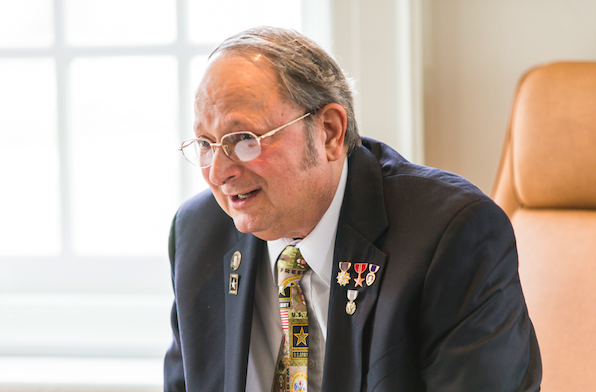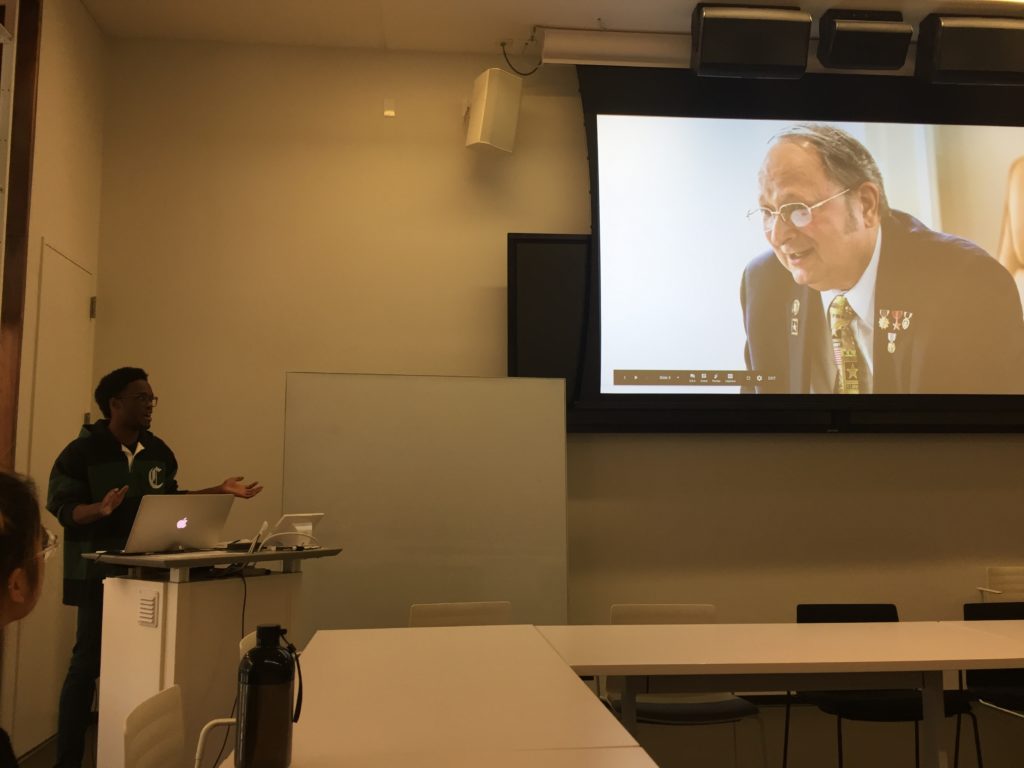Interviewed by Raynor Bond-Ashpole
Served in Vietnam 1969-1970

Photo by Patrick Montero
Roger Schwartz served in the U.S. Army from 1969-1970 as an electronic warfare specialist. He served in Bin Dinh Province, close to the Ho Chi Minh Trail, and earned a Bronze Star for his actions. His interview touched chiefly on his experiences on being drafted into the war as student deferments were begining to become more restricted. In the years after his deployment, Schwartz re-joined the Army as part of the Reserves– despite his earlier despair upon getting drafted– and commenced a successful military career.

Reflections on the interview from Raynor Bond-Ashpole:
Even with the struggles I had before and after the interview, my biggest challenge was during the interview. I had gone into the interview very prepared for discussion on Roger’s experience with Agent Orange—how he was exposed to it, compensations he received after the war, etc.—but I had found myself much more interested with his interaction with draft. Unfortunately, the draft was easily the part of the Vietnam experience I had least prepared myself for. Yet, I found myself enthralled in Roger’s story regarding it—he desperately did not want to enter war and saw it as a “waste of time.” However , owing to the suspension of educational deferments in 1968, he and others of the class of 1967 “caught it in the neck.” I was struck by how he described it: “a massacre of that generation.” In the moment, I decided that I would change my main topic and had to improvise many questions on the draft. As I was listening to Rogers’s answers I was simultaneously formulating more questions concerning the draft. It was interesting being able practice some adaptability in order to gain enough information for the research paper.
I was also struck by the emotional parts of the interview—they did not occur necessarily where I expected. I expected Roger to be uncomfortable discussing either his experiences in Vietnam or the effects of Agent Orange, but he was actually more distraught about events immediately before and after the war.
Full research and reflection paper:
